Finding the right insurance is key to protect yourself and your things. This guide will help you consider everything you need. It will show you how to check what coverage you need, the financial health of insurers, how to get quotes, find discounts, and how your age, driving history, and credit score affect prices. By the end, you’ll know how to get great protection at a fair cost.
Key Takeaways
- Determine the level of coverage you need, considering collision and comprehensive options as well as your state’s minimum requirements.
- Review the financial health of insurers by checking independent ratings from A.M. Best, Fitch, and others.
- Compare several best insurance policy quotes to find the most competitive rates, as prices can vary greatly among insurers.
- Ask about available discounts and cost-saving options to maximize your savings.
- Analyze your coverage needs based on life events and future plans to ensure the best insurance policy for your situation.
Determine the Level of Coverage You Need
It’s important to pick the right insurance level for you. Some policies might be cheap but could lack good protection. They might not help much in accidents or other bad situations.
Consider Collision and Comprehensive Coverage
Aside from liability coverage, check out collision coverage and comprehensive coverage. Collision covers fixing or getting a new car if you crash. Comprehensive helps with theft, vandalism, or natural disasters.
Evaluate Your State’s Minimum Requirements
Know what your state’s minimum insurance requirements are. They change by where you live. Making sure you match or do better than these rules is key to being well protected.
If you understand what’s required, choosing the best coverage level becomes easier.
| Coverage Type | Description |
|---|---|
| Liability Coverage | Covers damages and injuries you cause to others in an accident. |
| Collision Coverage | Covers damages to your vehicle if you collide with another car or object. |
| Comprehensive Coverage | Covers damages to your vehicle from events like theft, vandalism, or natural disasters. |
“It’s better to have coverage and not need it than to need it and not have it.” – Anonymous Insurance Expert
Also Read :How Does Pet Insurance Work?
Review the Financial Health of Insurers
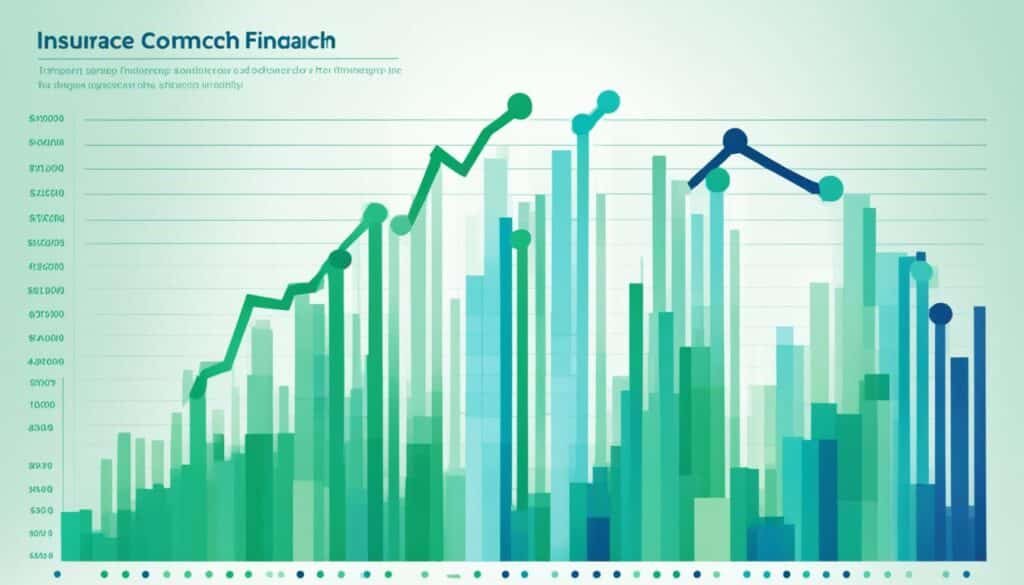
Choosing an insurance policy means looking into the insurance company’s finances. It’s wise to check how stable and creditworthy they are. Independent agencies like A.M. Best, Fitch, Moody’s, and Standard & Poor’s give ratings. These insurance company financial strength and A.M. Best ratings, Fitch ratings, Moody’s ratings, and Standard & Poor’s ratings help you decide.
Check Independent Ratings from A.M. Best, Fitch, and Others
These agencies look at things like if the insurance company has enough money and how well it runs its business. They also check how it manages risks. Their ratings show if the company can pay you when needed. Remember, higher ratings suggest the company is more likely to fulfill its promises.
- A.M. Best ratings range from A++ (Superior) to D (Poor)
- Fitch ratings range from AAA (Highest Quality) to D (Default)
- Moody’s ratings range from Aaa (Highest Quality) to C (Lowest Quality)
- Standard & Poor’s ratings range from AAA (Extremely Strong) to D (Default)
Looking at these ratings gives you key information about how strong the insurance companies are financially. This helps in choosing the right policy for your situation.
Also Read : What Is An Installment Loan?
Compare Several Best Insurance Policy Quotes

When looking for the top insurance policy, it’s key to check out many quotes. Every insurer prices their coverage differently since they follow unique risk assessment methods. Also, where you live and your vehicle’s type affect how much you pay for insurance.
Prices Vary Greatly Among Insurers
Comparing quotes is important because prices can differ a lot. Insurance companies evaluate risk in their way, leading to various premium costs for the same coverage options. Looking around helps you find the best rate for what you need.
Factors Like Location and Vehicle Type Impact Rates
Where you live and your car type also change how much you pay for insurance. Things like how crowded your area is and driving habits impact your cost. Also, the car’s make, model, and age matter in setting rates.
By comparing insurance quotes, insurance rates by location, and insurance rates by vehicle, you make a smart choice. This way, you can find the best insurance policy for you without breaking the bank.
| Insurer | Average Annual Premium | Average Monthly Premium |
|---|---|---|
| Company A | $1,200 | $100 |
| Company B | $1,500 | $125 |
| Company C | $1,800 | $150 |
| Company D | $1,350 | $112.50 |
“By shopping around and comparing several options, you’ll be better equipped to find the most competitive rate for the coverage you need.”
Also Read :What Is A Loan Disbursement?
Ask About Discounts and Cost-Saving Options
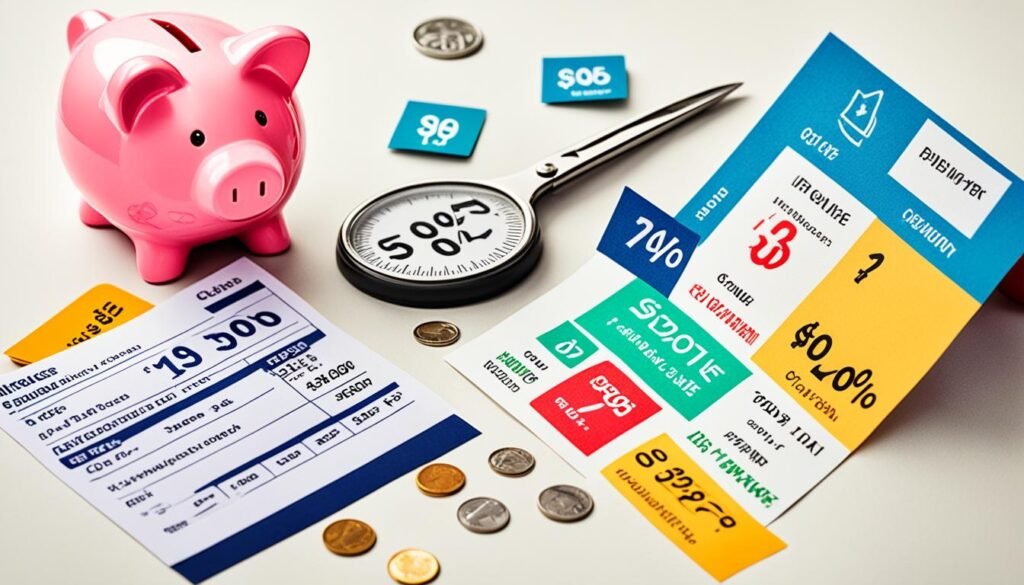
Searching for the best insurance policy means looking for discounts and ways to save money. Insurers might offer discounts if you drive well, use your car less, have anti-theft tech, or drive a safe car. Using these insurance discounts can lower your costs on coverage.
Asking insurers about their discount programs is a smart way to save on insurance. They may have discounts like:
- Good Driver Discount: For drivers with clean records and no accidents or violations.
- Low Mileage Discount: For those who drive less than the average number of miles per year.
- Anti-Theft Device Discount: For vehicles equipped with approved security systems.
- Safe Vehicle Discount: For driving cars with high safety ratings and advanced safety features.
- Multi-Policy Discount: For bundling your auto insurance with other policies, such as homeowner’s or renter’s insurance.
Moreover, insurers share cost-saving tips to lower expenses. They might recommend increasing your deductible or paying your premiums yearly. Defensive driving classes can also bring down costs. By checking all available insurance discounts, you can pick a policy that’s right for you and your budget.
“Securing the best insurance policy is not just about finding the lowest price; it’s about understanding the value you’re getting for your money. Asking about discounts and cost-saving options can help you achieve the coverage you need at a price you can afford.”
| Discount Type | Description | Potential Savings |
|---|---|---|
| Good Driver | For drivers with clean records and no accidents or violations. | Up to 25% off premiums |
| Low Mileage | For those who drive less than the average number of miles per year. | 5-15% off premiums |
| Anti-Theft Device | For vehicles equipped with approved security systems. | 10-15% off comprehensive coverage |
| Safe Vehicle | For driving cars with high safety ratings and advanced safety features. | 5-10% off premiums |
| Multi-Policy | For bundling your auto insurance with other policies, such as homeowner’s or renter’s insurance. | 10-20% off total premiums |
Best Insurance Policy: Analyze Coverage Needs
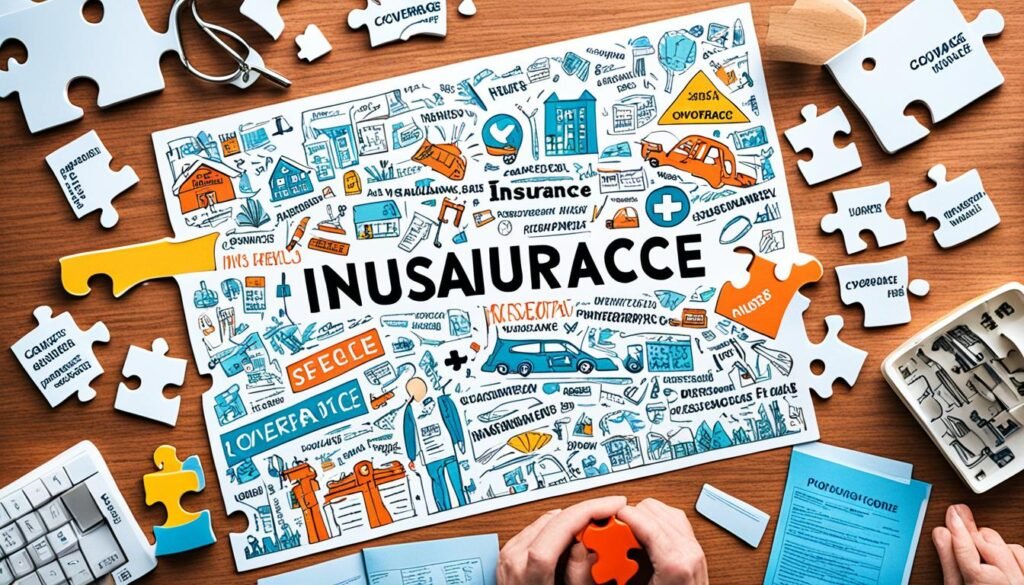
When you want to pick the best insurance policy, it’s important to look at what you need now. Also, think about how your needs might change later on. Reflect on your life events and what you plan to do in the future. This helps ensure your insurance keeps up as your life changes.
Consider Life Events and Future Plans
Thinking about your insurance coverage needs, consider big life moments like:
- Purchasing a new home
- Getting married or starting a family
- Experiencing a significant career change
- Retiring or transitioning to a fixed income
Don’t forget to plan for the future with your insurance. This includes things such as:
- Expanding your business or investments
- Taking care of aging family or loved ones
- Planning for children’s future education or weddings
- Getting ready for health or long-term care costs
By carefully considering your insurance for life events and future goals, you can find a policy that offers the protection you need. It will help look after your finances and let you meet your long-term aims.
| Life Event | Potential Insurance Needs |
|---|---|
| Buying a Home | Homeowner’s insurance, life insurance, disability insurance |
| Getting Married | Life insurance, health insurance, auto insurance |
| Starting a Family | Life insurance, health insurance, disability insurance |
| Retirement | Life insurance, long-term care insurance, Medicare supplemental insurance |
When evaluating your insurance coverage needs, insurance for life events, and insurance for future plans, you can wisely choose the right policy. This ensures it fits your changing needs well.
“The best way to find the right insurance policy is to consider both your current and future needs. This full view keeps you safe financially, both now and as life moves forward.”
Also Read :How Do I Get A Loan Without Credit?
Compare Best Insurance Policy Rates by Age and Driving History
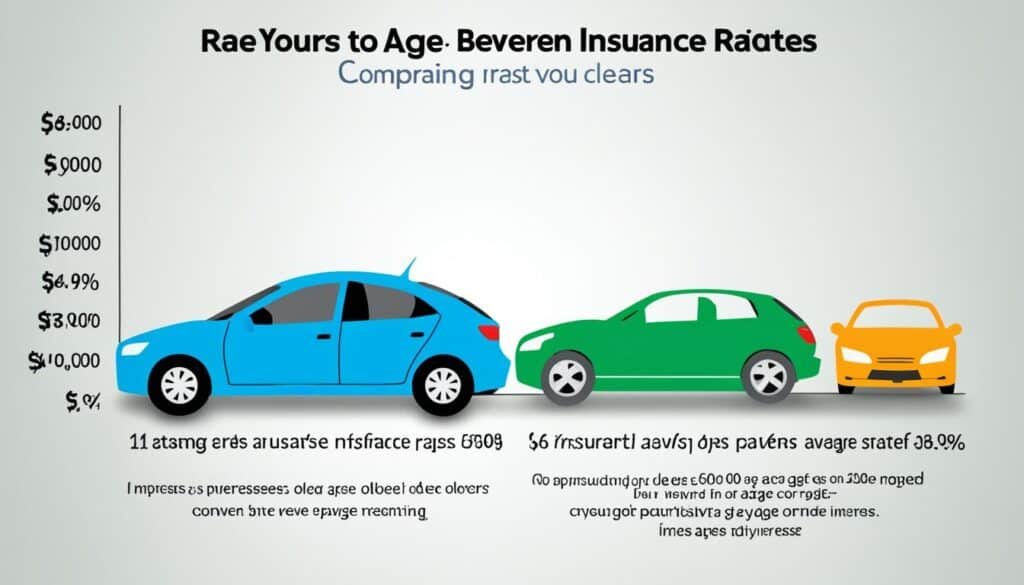
When you look for a good insurance policy, knowing how your age and driving history affect the cost is key. People in their 20s often pay more because they’re more likely to have accidents. Also, if you’ve had accidents or got a DUI, this can make your insurance really expensive. Insurers see you as a bigger risk.
Younger Drivers Typically Pay Higher Premiums
If you’re a new driver or under 25, insurance companies usually consider you high-risk. Insurance rates for young drivers are often much costlier than for older, more experienced drivers. Younger drivers tend to take more risks, like speeding or driving when distracted. This behavior can result in more accidents and claims, raising their insurance costs.
DUIs and Accidents Can Significantly Increase Costs
If you have a DUI or a history of accidents, your insurance rates can really go up. Insurers see these drivers as more of a risk, which means they will charge higher prices. For those with a history of accidents, their insurance rates can be two to three times more expensive. This is true for both major and minor accidents.
Knowing how your age and driving record affect your insurance costs is important. Researching insurance rates by age and for those with duis or accidents can help you find the best policy. This way, you can get the coverage you need without paying too much.
Also Read :How Does Insurance Protect Against Natural Disasters?
Understand How Credit Scores Affect Best Insurance Policy Rates
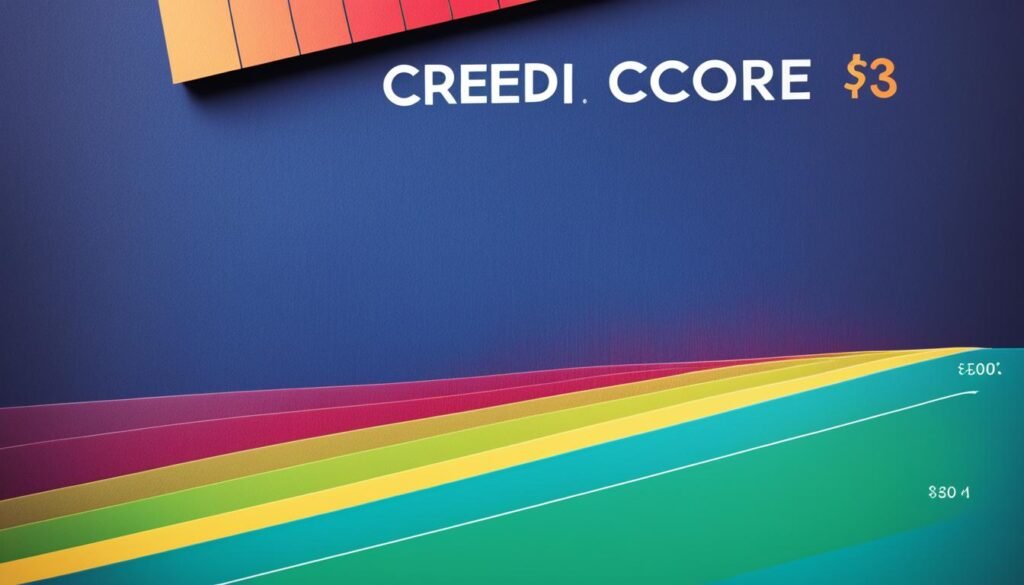
Your credit score influences the cost of your insurance. Insurers look at your credit to measure how risky you are. They do this because studies suggest a link between credit history and claim likelihood.
Knowing this link helps you choose your insurance better. It means understanding your credit score can help you save money on your policy.
Also Read :Best MBA Scholarship Programs In Canada
The Influence of Credit Scores on Insurance Rates
Insurers check your credit-based insurance score to set your rates. This score looks at your credit history to guess how likely you are to claim. People with lower scores might have to pay more for insurance.
Why do they do this? Studies have tied lower credit scores to more claims. Insurers think those with low scores will claim more, which could cost them more money.
| Credit Score Range | Average Annual Auto Insurance Premium |
|---|---|
| 800-850 | $1,277 |
| 740-799 | $1,392 |
| 670-739 | $1,536 |
| 580-669 | $1,661 |
| 500-579 | $1,823 |
The table shows that better scores lead to lower rates. The savings from a high credit score are big. So, it’s smart to keep your credit score high for cheaper insurance.
Yes, using credit in insurance scores is debatable. However, some states have rules to keep this process clear and fair. Learning how your credit affects your rates makes buying insurance easier and more cost-efficient.
Evaluate Customer Service and Claims Process

When picking the right insurance, check how they treat their customers and handle claims. It’s wise to look into each insurer’s reputation. See if they are quick to respond and how smoothly they process claims. Choosing a company that offers great service is as crucial as the policy’s details and its price.
Research Insurer Reputation and Responsiveness
The way an insurance company treats its customers matters a lot. Find insurers known for their quick response and efficient claim handling. Reading what others say, from their firsthand experiences, can give you a good idea of what to expect.
- Evaluate the insurer’s customer service channels, such as their website, mobile app, and customer support lines, to gauge their accessibility and responsiveness.
- Consider the company’s claims processing timeline and how they communicate with policyholders throughout the claims process.
- Check industry ratings and consumer surveys to understand the insurer’s reputation for customer satisfaction and claims handling.
Research the insurance company’s customer service and claims process well. This will help you pick insurance that meets your needs and provides the support you require swiftly.
“A positive customer experience can be just as important as the policy’s coverage and cost.”
Also Read : Home Insurance Protect Your Property With Comprehensive Coverage
Conclusion
Finding the best insurance policy needs you to look closely. First, think about what protection you really need. Then, check how strong different insurance companies are financially. Also, it’s wise to get several quotes to find a good deal. Use discounts if you can and know that age, driving past, and credit scores affect prices.
It’s also key to see how well insurance companies treat their customers. This helps you know they’ll be there for you when something goes wrong. Remember, the best insurance for you is tailor-made. It should fit your life and future plans perfectly.
Following this insurance coverage guide will help you. It makes the process of finding a good policy less confusing. With the right information, you can pick an insurance that not only protects but also brings you peace of mind.
FAQs
How do I determine the appropriate level of coverage for my needs?
Consider getting both collision and comprehensive coverage. They help if your car needs fixing or replacing. Make sure you check your state’s insurance rules too.
How can I review the financial health of insurance companies?
Use info from trusted sources like A.M. Best and Moody’s. They judge how strong insurance companies are financially. This info can show who can pay if you make a claim.
Why is it important to compare multiple quotes for the best insurance policy?
Insurance prices are not the same everywhere. Each insurer looks at risk differently, impacting your costs. Compare different options to get the best deal for your situation.
What kind of discounts and cost-saving options should I look for?
Look for discounts based on safe driving, low mileage, and the type of car you have. These savings can help make your insurance more affordable.
How do my age and driving history affect the cost of my best insurance policy?
If you’re in your 20s, you might pay more for insurance because of accident risks. Having a history of accidents or DUIs could also increase your rates.
How does my credit score impact the cost of my best insurance policy?
Many insurers look at your credit score to judge how likely you are to claim. Understand this link to make smarter choices when picking your policy.
What should I consider when evaluating the customer service and claims process of insurance providers?
It’s not just about the price. Good customer service and quick claims handling are crucial. Make sure the company you choose is reliable and helpful when you need it.
Source Links
- https://www.healthcare.gov/choose-a-plan/comparing-plans/
- https://www.nerdwallet.com/p/insurance/car-insurance
- https://www.travelers.com/resources/auto/insuring/how-to-choose-car-insurance-in-4-steps




